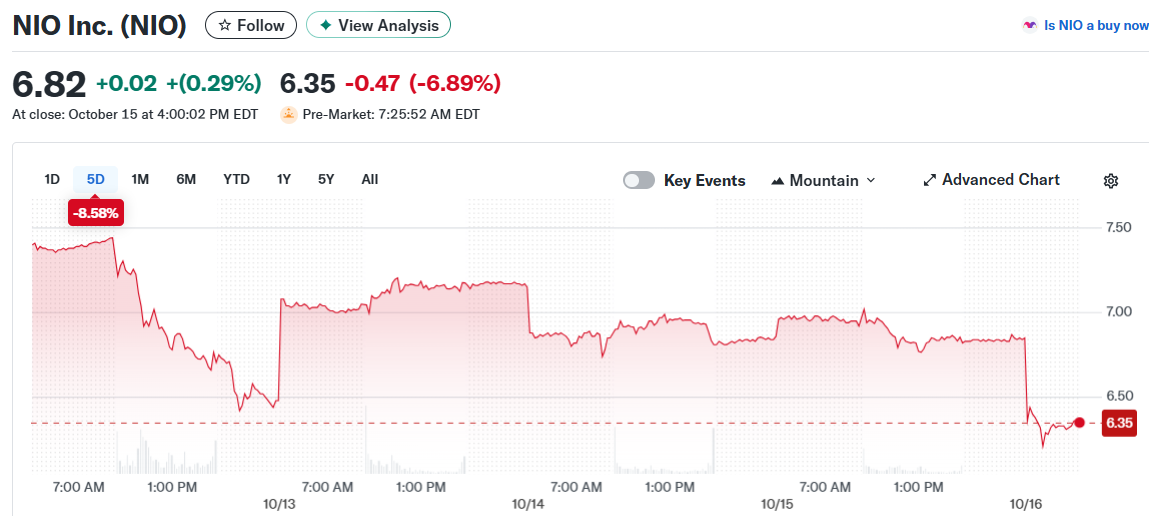TLDR
- GIC, Singapore’s sovereign wealth fund, filed a securities fraud lawsuit against NIO in U.S. federal court
- The suit alleges NIO artificially inflated American depositary receipt prices between August 2020 and July 2022
- GIC purchased 54.5 million NIO ADRs during this period at allegedly inflated prices
- The lawsuit centers on Weineng Battery Asset Company, which GIC claims was not truly independent
- NIO stock fell 13% in Hong Kong, erasing gains from a 56% year-to-date rally
NIO stock experienced its worst trading day in six months on Thursday. Singapore’s GIC filed a lawsuit alleging securities fraud against the Chinese electric vehicle manufacturer.

The stock dropped 13% in Hong Kong to HK$47. American depositary receipts fell 7.3% to $6.32 in pre-market trading.
GIC filed the complaint in August at the U.S. district court for the southern district of New York. The lawsuit targets NIO, CEO Bin Li, and CFO Wei Feng.
The sovereign wealth fund claims it purchased 54.5 million ADRs at inflated prices. These purchases occurred between August 11, 2020, and July 11, 2022.
The Fraud Allegations
GIC’s lawsuit alleges NIO misled investors about its financial health. The fund claims the company made false statements and withheld critical business information.
The case centers on a 2020 transaction involving battery assets. During a liquidity crisis that year, NIO created Weineng Battery Asset Company.
This entity purchased batteries that NIO had been leasing. The transaction allowed NIO to immediately recognize revenue from the battery sales.
GIC describes Weineng as a “superficially independent company.” The fund argues the entity was not truly separate from NIO.
The arrangement allegedly masked NIO’s true financial condition. Investors were not properly informed about the business relationship, according to the complaint.
Market Impact
The lawsuit comes at a bad time for NIO shareholders. The stock had been one of the year’s better performers in the EV sector.
NIO ADRs were up 56% year-to-date through Wednesday’s close. This gain significantly outpaced the S&P 500’s 13% return.
Investors had been optimistic about NIO’s prospects in China’s premium electric vehicle market. The company had been gaining traction with new models and expanded production.
Thursday’s 13% decline marked the stock’s largest single-day drop since mid-April. The selloff put NIO shares at their lowest level since September 11.
The stock led declines on Hong Kong’s Hang Seng Tech Index. That benchmark fell 1.5% while the Hang Seng Automobile Index dropped 1.7%.
Company Response
NIO declined to comment on the lawsuit when contacted by media outlets. GIC also did not respond to requests for comment.
Neither company has issued public statements about the legal action. The lawsuit remained relatively quiet until Chinese financial magazine Caixin reported on it Wednesday.
GIC manages Singapore’s foreign reserves and ranks among the world’s largest sovereign wealth funds. The fund invests globally across technology, infrastructure, and other sectors.
The legal filing in the southern district of New York occurred in August 2025. Public awareness of the case only emerged months later through media reports.
NIO’s Hong Kong-listed shares continue to trade under pressure as investors assess the lawsuit’s potential impact on the company.





